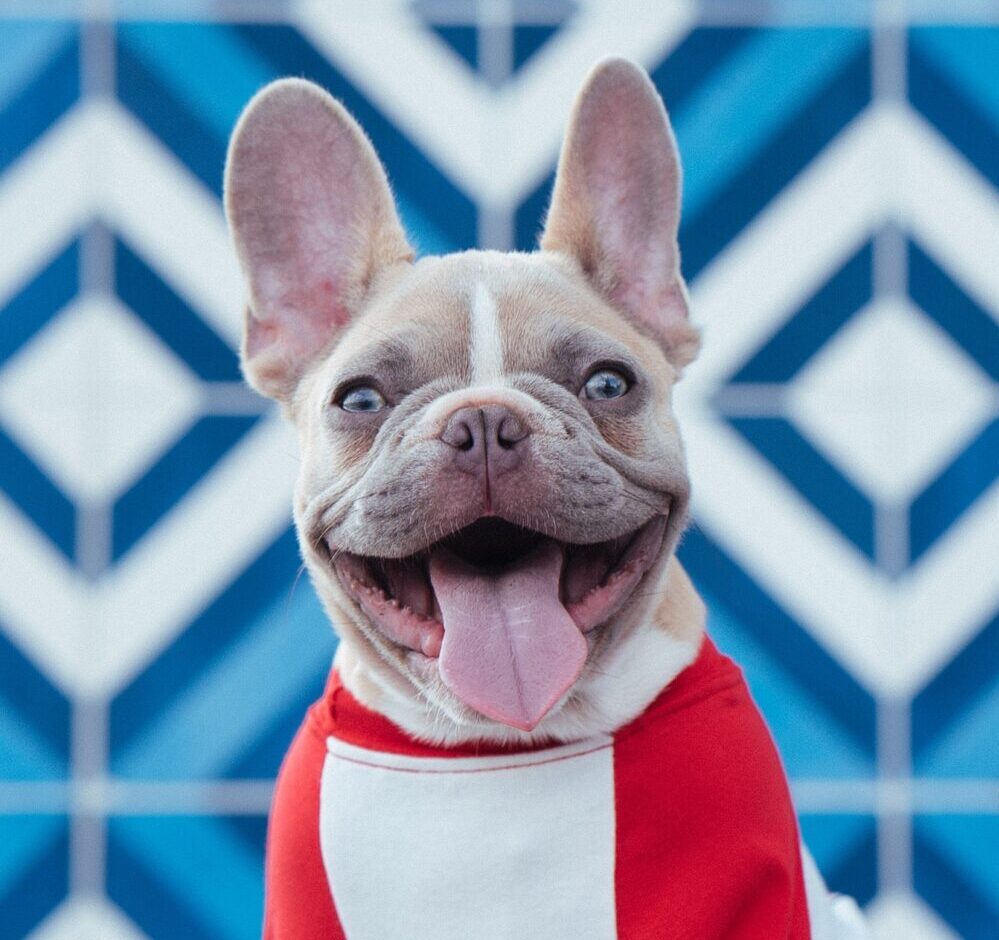Support our educational content for free when you purchase through links on our site. Learn more
[2023] How Long Can Boston Terriers Hold Their Bladder? The Ultimate Guide to Potty Training
Quick Answer:
Boston Terriers can typically hold their bladder for 4 to 6 hours, depending on their age, size, and overall health. However, it’s important to note that every dog is different, and some Boston Terriers may need more frequent potty breaks. Consistent potty training and establishing a routine are key to helping your Boston Terrier develop good bladder control.
Quick Tips and Facts:
- Boston Terriers are intelligent and eager to please, making them generally easy to potty train.
- Potty training a Boston Terrier requires patience, consistency, and positive reinforcement.
- Neutering or spaying your Boston Terrier can help with potty training by reducing marking behavior.
- Signs that a Boston Terrier needs to go potty include circling or pacing, squatting, whining, becoming fidgety, and losing interest in toys.
- Having the right items, such as puppy pads, carpet cleaning spray, and potty cue bells, can make potty training easier.
Background: The Potty Training Journey of Boston Terriers
Potty training is an essential part of owning a Boston Terrier. These intelligent and affectionate dogs are known for their snub noses and playful personalities. While Boston Terriers are generally easy to potty train, it requires time, effort, and consistency to establish good habits.
1. Are Boston Terriers Easy To Potty Train?
Boston Terriers are known for their intelligence and eagerness to please, which makes them generally easy to potty train. According to a survey conducted on the Boston Terrier Society’s Facebook community, 285 votes indicated that Boston Terriers are easy to potty train[1]. However, it’s important to remember that each dog is unique, and some Boston Terriers may require more time and patience during the potty training process.
2. Steps To Potty Training A Boston Terrier
Potty training a Boston Terrier involves several important steps:
-
Establish a designated potty area: Whether you choose to train your Boston Terrier to go potty outdoors or on puppy pads indoors, it’s crucial to establish a consistent location for them to relieve themselves.
-
Frequent potty breaks: Take your Boston Terrier to the designated potty spot regularly, especially after meals, naps, playtime, or any other transition that may trigger the need to go potty.
-
Supervise and reward: During potty breaks, supervise your Boston Terrier closely to ensure they actually go potty in the designated area. When they do, praise and reward them with treats or verbal praise to reinforce the desired behavior.
-
Consistency is key: Maintain a consistent potty training routine to help your Boston Terrier develop good habits. Consistency includes taking them to the same spot, using the same cues, and rewarding them consistently for going potty in the right place.
3. Things To Consider When Potty Training An Adult Boston Terrier
Potty training an adult Boston Terrier may require some additional considerations:
-
Establishing a new routine: Adult dogs may not have the instinct to go outside to relieve themselves, especially if they were previously trained to use puppy pads indoors. It’s important to establish a new routine and gradually transition them to the desired potty area.
-
Environmental changes: Adult Boston Terriers may be thrown off by changes in their environment, such as moving to a new home or traveling. During these times, it’s crucial to provide extra guidance and reinforce the potty training routine.
4. Things To Consider When Potty Training A Boston Terrier Puppy
Potty training a Boston Terrier puppy requires additional attention and patience:
-
Limited bladder control: Puppies cannot control their bladders until around 16 weeks of age. This means they will need more frequent potty breaks, typically every 1 to 2 hours, to avoid accidents.
-
Crate training: Crate training can be a helpful tool for potty training a Boston Terrier puppy. Dogs naturally avoid soiling their sleeping area, so using a crate can help teach them to hold their bladder and establish a routine.
-
Positive reinforcement: Praise and reward your Boston Terrier puppy every time they go potty in the designated area. Positive reinforcement helps them associate the desired behavior with a positive outcome.
5. Why Neutering And Spaying Are Important To Potty Training
Neutering or spaying your Boston Terrier can have a positive impact on potty training:
- Reduced marking behavior: Neutering or spaying can reduce marking behavior in both male and female Boston Terriers. Marking behavior is when dogs urinate to leave their scent and establish territory. By reducing this behavior, potty training can be easier and more effective.
6. How To Tell When My Boston Terrier Needs To Go Potty?
Boston Terriers may exhibit certain signs when they need to go potty:
-
Circling or pacing: Your Boston Terrier may start circling or pacing around the room, indicating that they need to relieve themselves.
-
Squatting: Squatting is a clear sign that your Boston Terrier is ready to go potty.
-
Whining or seeking attention: If your Boston Terrier suddenly becomes vocal or seeks your attention, it may be a sign that they need to go outside.
-
Becoming fidgety: Restlessness or fidgeting can indicate that your Boston Terrier needs to relieve themselves.
-
Losing interest in toys or chewies: If your Boston Terrier suddenly loses interest in their toys or chewies, it may be a sign that they need to go potty.
7. Items To Have When Potty Training A Boston Terrier
Having the right items can make potty training a Boston Terrier easier:
-
Puppy pads: Puppy pads are absorbent pads that can be placed indoors as an alternative potty area. They are especially useful for potty training puppies or for situations when going outside is not possible.
-
Carpet cleaning spray: Accidents may happen during the potty training process. Having a carpet cleaning spray specifically designed for pet stains and odors can help remove any messes and prevent repeat accidents.
-
Potty cue bells: Potty cue bells are bells that can be hung on a door handle or near the designated potty area. By teaching your Boston Terrier to ring the bells when they need to go outside, you can establish a communication system between you and your dog.
FAQ
How often do Boston Terriers go pee?
Boston Terriers typically need to go pee every 4 to 6 hours, depending on their age, size, and overall health. However, it’s important to note that every dog is different, and some Boston Terriers may require more frequent potty breaks.
Can a dog hold pee for 24 hours?
No, it is not healthy or safe for a dog to hold their pee for 24 hours. Dogs should have regular opportunities to relieve themselves to avoid discomfort, urinary tract infections, or other health issues. If you are unable to provide regular potty breaks for your Boston Terrier, consider hiring a dog walker or using indoor potty solutions like puppy pads.
What happens if a dog holds his pee too long?
If a dog holds their pee for too long, it can lead to urinary tract infections, bladder stones, or even bladder rupture. Holding urine for extended periods can put strain on the urinary system and lead to discomfort and potential health issues. It’s important to provide regular opportunities for your Boston Terrier to relieve themselves.
Why does my Boston Terrier keep peeing in the house?
There can be several reasons why a Boston Terrier may continue to pee in the house:
-
Incomplete potty training: If your Boston Terrier has not been fully potty trained, they may not understand where they are supposed to go.
-
Medical issues: Urinary tract infections, bladder stones, or other medical conditions can cause frequent urination or accidents. If your Boston Terrier continues to have accidents despite proper potty training, it’s important to consult with a veterinarian to rule out any underlying health issues.
-
Marking behavior: Unneutered or unspayed Boston Terriers may engage in marking behavior, where they urinate to leave their scent and establish territory. Neutering or spaying can help reduce this behavior.
Read more about “Why does my Boston Terrier keep peeing in the house?”
Conclusion
Potty training a Boston Terrier requires patience, consistency, and positive reinforcement. While every dog is different, Boston Terriers are generally easy to potty train due to their intelligence and eagerness to please. Establishing a routine, providing regular potty breaks, and using positive reinforcement are key to successful potty training.
Remember to be patient with your Boston Terrier and celebrate their successes along the way. With time and consistency, your Boston Terrier will develop good bladder control and become a well-trained companion.
Recommended Links
-
CHECK PRICE on:
-
Shop Boston Terrier Training Products on:
-
Books on Potty Training:
Reference Links
- Boston Terrier Society – How To Potty Train A Boston Terrier
- Boston Terrier Society – Are Boston’s Easy To Potty Train? How To Do It In 5 Steps …
Internal Links
For further reading, check out these related articles on Snubby Puppy™:



